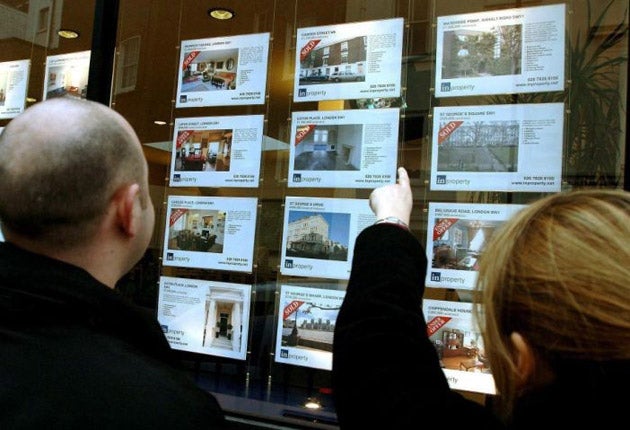House prices dive to a two-year low

House prices fell at their fastest annual rate for 18 months during April as weak consumer confidence caused potential buyers to stay away from the property market, figures showed today.
The average cost of a home dived by 1.4% during the month to stand at £160,395, the lowest level since July 2009, according to Halifax.
The latest slide led to property values being 3.7% lower during the three months to the end of April than during the same three months of the previous year - the biggest annual decline since October 2009.
The group blamed the slide on weak consumer confidence in the face of economic uncertainty, which it said was constraining demand, putting downward pressure on prices.
Property values are now just 4% above the low they hit April 2009, while they are 20% below the peak they reached in August 2007, before the credit crunch struck.
House prices have been highly volatile during the past year, dropping in seven months, rising in four and remaining unchanged in one month, as the market continues to be unsettled.
The quarter-on-quarter change, often seen as a smoother indicator of market trends, also pointed to an acceleration in the rate at which prices were falling.
Homes lost 1.2% of their value during the three months to the end of April, double the 0.6% drop recorded during the three months to the end of March, and the biggest quarterly fall since October last year.
But despite the gloomy figures, Halifax said it expected the rate at which house prices are falling to ease.
Halifax housing economist Martin Ellis said: "Signs of a modest tightening in housing market conditions, a relatively low burden of servicing mortgage debt and an increase in the number of people in employment are all likely to be providing support for house prices, curbing the pace of decline.
"There are signs that house sales are stabilising, albeit at a level lower than the historical average."
But Howard Archer, chief UK and European economist at IHS Global Insight, was less optimistic.
He said: "We believe that house prices are likely to end up declining by some 10% overall by the early months of 2012 from their peak levels in 2010. This implies that they will fall by around 5% to 7% more, depending on which measure you take.
"It is clear that critical to the development of house prices over the coming months will be the amount of houses coming on to the market, mortgage availability, how well the economy and jobs hold up as the fiscal squeeze increasingly kicks in, and what happens with interest rates."
The figures contrast with those reported by Nationwide for the same month, which showed that house prices remained broadly unchanged, dropping by 0.2%, leaving property values 1.3% lower than in April 2010.
Join our commenting forum
Join thought-provoking conversations, follow other Independent readers and see their replies
Comments
Bookmark popover
Removed from bookmarks